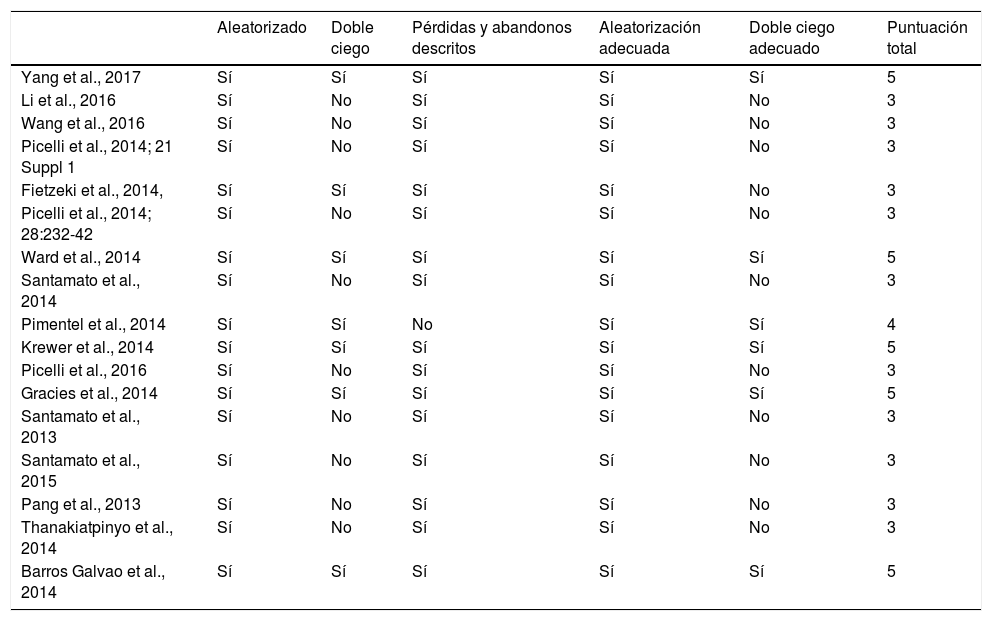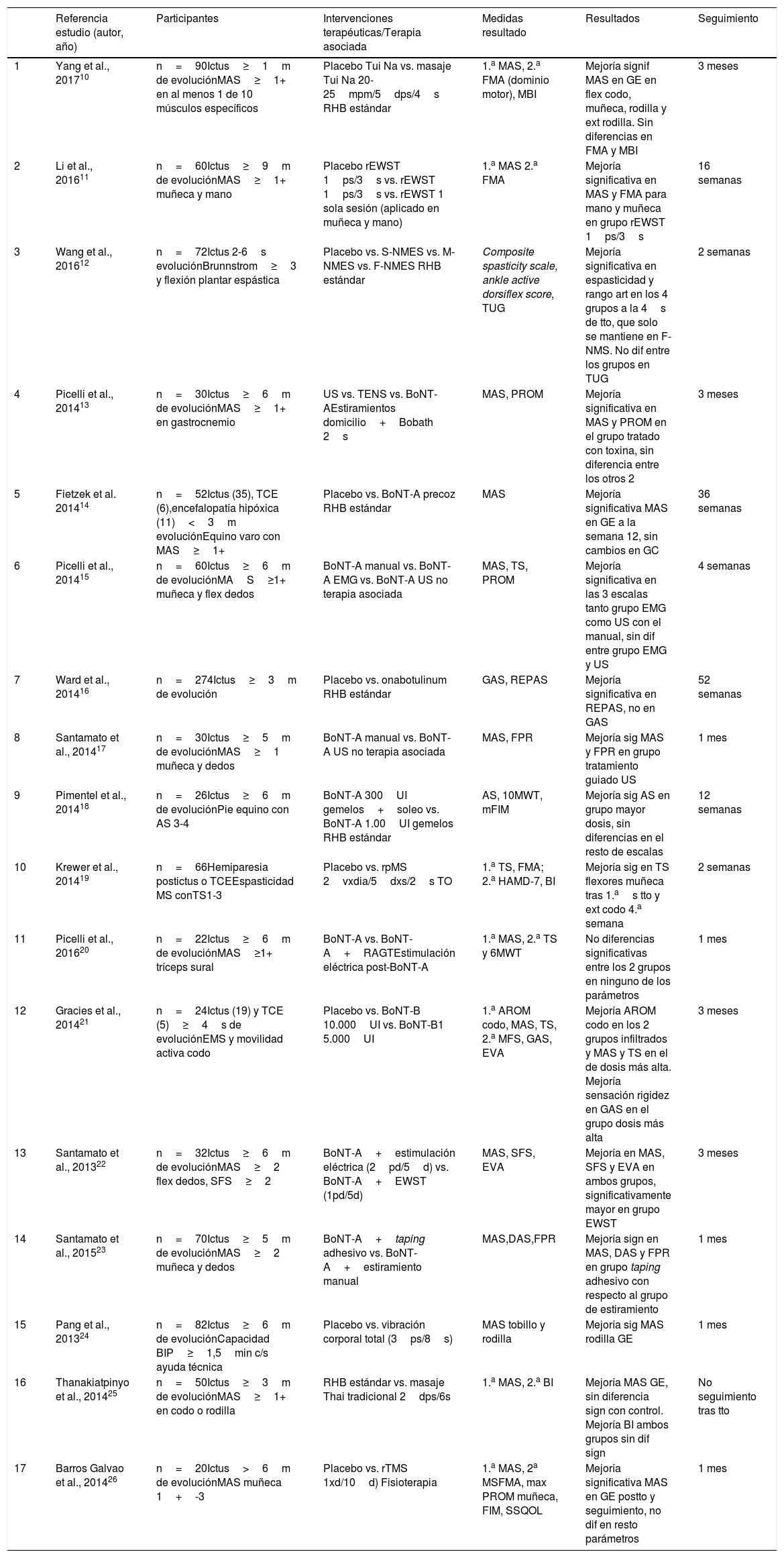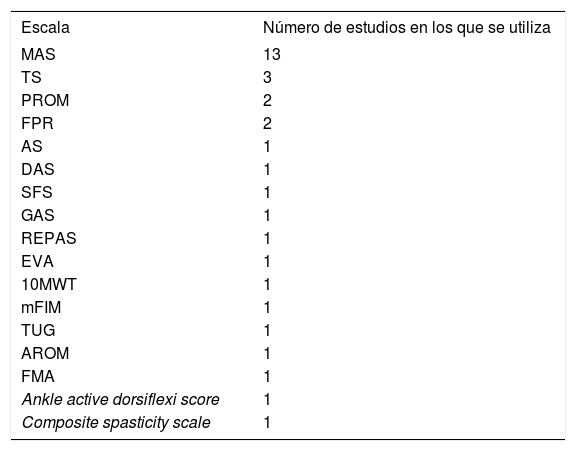La espasticidad es un trastorno motor, caracterizado por un aumento del tono muscular, y que aparece como consecuencia de un trastorno del sistema nervioso central, dando lugar a déficit y discapacidad, con deterioro de la calidad de vida. En el daño cerebral adquirido del adulto, la espasticidad constituye un problema grave y frecuente, apareciendo en un 20-30% de pacientes con ictus y en un 13-20% de pacientes con traumatismo craneoencefálico moderado-grave. El objetivo principal de este trabajo es realizar una revisión sistemática de los tratamientos utilizados en la espasticidad del paciente adulto con daño cerebral adquirido secundario a ictus y traumatismo craneoencefálico. Como objetivo secundario se pretende averiguar las principales escalas de valoración utilizadas para la medida de la espasticidad en estos pacientes. Se ha realizado una búsqueda sistemática de ensayos controlados aleatorizados, publicados entre el 1 de enero de 2013 y 30 de junio de 2017 en inglés y castellano, en las bases de datos PubMed, Biblioteca Cochrane plus y Ovid. Se han seleccionado finalmente 17 estudios, con una calidad metodológica al menos aceptable, según la escala de Jadad. Los tratamientos más frecuentemente investigados son la toxina botulínica, especialmente el serotipo A, junto a medidas rehabilitadoras. Las escalas clínicas son las más frecuentemente utilizadas para la evaluación de la espasticidad.
Spasticity is a motor disorder characterised by an increase in muscle tone that appears as a consequence of a central nervous system disorder, leading to deficit and disability and impairing quality of life. In acquired adult brain damage, spasticity is a severe and frequent problem, appearing in 20-30% of patients with stroke and in 13-20% of patients with moderate-severe traumatic brain injury. The main objective of this study was to perform a systematic review of the treatments used in spasticity in adult patients with acquired brain damage secondary to stroke and head trauma. A systematic search of randomised controlled trials, published between January 1, 2013 and June 30, 2017 in English and Spanish, was carried out in the PubMed, Cochrane plus Library and Ovid databases. We finally selected 17 studies, with methodological quality that was at least acceptable according to the Jadad scale. The most frequently investigated treatments are botulinum toxin, especially serotype A, together with rehabilitative measures. Clinical scales are the most frequently used to assess spasticity.










